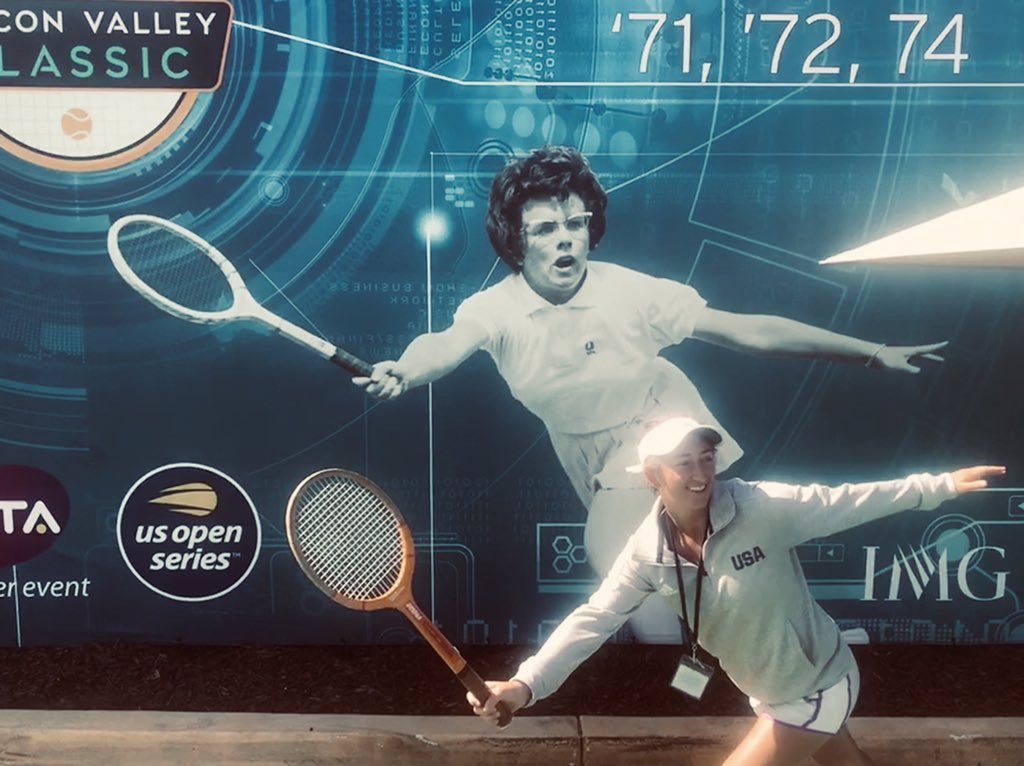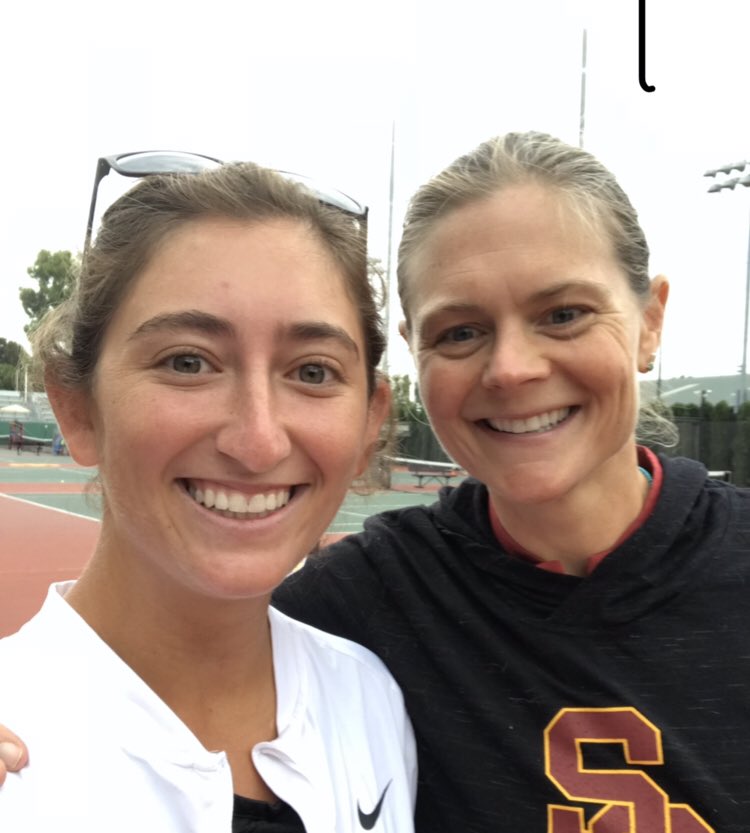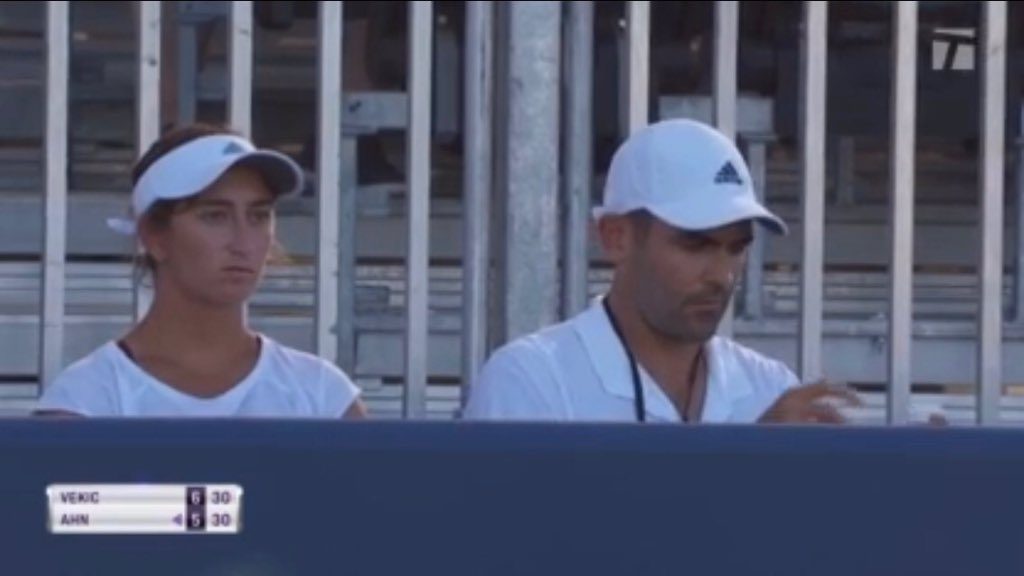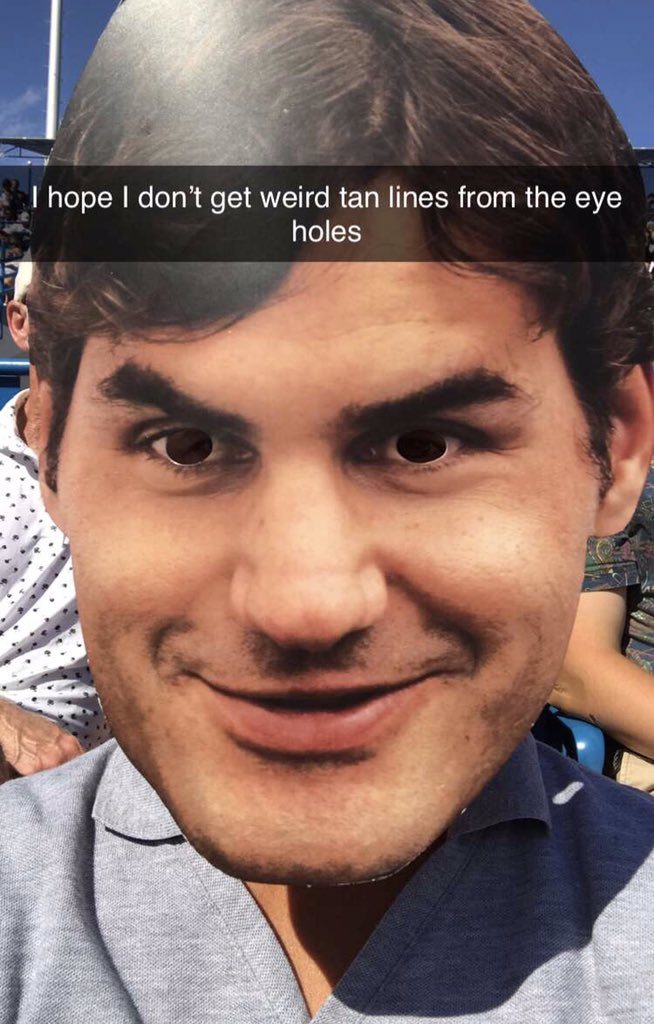After a dismal attempt at summer blogging, let me be the first to welcome you back to Division3Tennis.com for the 2019-2020 school year. September is now here which mean’s summer is quickly coming to an end and it’s time show some back to school spirit. We’re still a few weeks away from regionals, the main event of our fall season, but the women’s side of The Blog is starting to get our gears cranking in an effort to bring you even more coverage this year. We have some awesome things planned, including a brand new women’s writer, who will be entering the chaos shortly.
Before I get into our article today, I just want to make a quick plug – we are always looking for interested writers to broaden the scope and depth of our coverage of D3 tennis! We understand there are so many great players and stories out there but it’s just not feasible for the 5 of us to cover everything. If you are even considering reaching out, please just do it! Try writing something with us and see how it goes. You might find you enjoy it and next thing you know you’re trying to find a girlfriend for your blog brother NewD3Central. It’s proving to be quite the task.
The first Women in Coaching interview I did with Erin Ness was very well received, so I wanted to kick off my blogging season with another interview with an incredible woman coach. This coach just so happens to be recent D3 graduate, Leah Bush (’19) of Williams fame. She was kind of enough to catch up with me after a busy summer doing a Professional Coaching Post-Grad Fellowship with the USTA. She had a very remarkable career at Williams as a member of the 2017 Championship Team, a singles All-American, and was voted as the National Most Improved Senior earlier this year.
But even more than her accomplishments on paper, Coach Bush is just a cool person to talk to (even if it is only talking via the internet). I get the impression that she is mature beyond her years. Just read what she has to say below and you’ll probably agree with me that she has a very high emotional intelligence. Whitman is lucky to have her this year!
————————————————————————————————————-
ASW: First of all, thank you so much for checking in with us and letting us update the world on your life post graduation! So excited to hear from you. What have you been up to since graduation? What kind of experiences are involved in your Professional Coaching Post-Grad Fellowship?
LB: I had a couple of weeks between graduation and the start of the USTA internship. In that time, I mostly just defrosted

In the first three weeks of the internship, I got to help write and run practices in Lake Nona while learning from some of the people who are essential to pro players’ successes—tennis coaches as well as strength and conditioning coaches, athletic medicine staff, nutritionists, and so forth. I even improved my record against 12 year olds to an even .500. (I lost to a 12 year old in summer 2016.) ASW Edit: you might have seen that 12 year old on TV recently.
For the rest of the summer, I traveled with players and USTA national coaches to tournaments and a coaching education program. At tournaments, I scouted opponents, warmed US players up, bounced mid-match ideas off on-court coaches, and debriefed matches with players afterwards. The coaching ed program brought USTA’s player development interns together with junior and pro coaches from around the country.
While traveling to some incredible pro-level tournaments, I saw traces of DIII tennis everywhere. In addition to meeting up with some Ephs in their natural habitats, I hiked with Charlie Cutler (WashU ‘09) in Berkeley, took part in a coaching ed program with Tristan Kaye (Kenyon ‘17) in Los Angeles, and coached Kristie Ahn (Stanford ‘14) as she earned some career-defining wins and confidence. (Kristie made no mention of the Nadal/Thiem Lion King tweet.)
These experiences wouldn’t be possible without the support of USTA and many, many coaches and staff, and I can’t express my gratitude enough.
ASW: Wow! Sounds like an incredible experience! I know eventually you’ll be starring in Hamilton and this is all mostly irrelevant, but what made you decide to pursue coaching as a career?
LB: I had never considered coaching as a career until I did—in summer 2017, when my team was going through a coaching transition. That summer afforded me an uncommonly clear opportunity to reflect on the impact that Alison Swain had on the lives of my teammates and me and what I valued in a coach and leader. Getting to know Anik Cepeda filled me with a similar belief in her ability to make her own mark with her own pizzazz. And tennis gave me a community, making all the above on- and off-court relationships and growth possible. I want to pay it forward, plain and simple. To enjoy what I find fulfilling is a bonus.
ASW: What’s the most unexpected thing that you learned about coaching this summer?

LB: I didn’t go in with expectations, just a vague understanding that what I saw of coaching from the perspective of a player scratched the surface of the ways coaching is rewarding and challenging. That said, it was a relief to learn from coaches’ everyday willingness to learn that I’m never going to wake up one day having become a Competent coach—and that that’s as true of José Higueras as it is of little-old me. Every day is an opportunity to improve and grow.
ASW: What’s the most unexpected thing that you learned about yourself this summer?
LB: That I enjoy the taste of black coffee. Even at Williams, I was a 9¼ hours of sleep per night kind of person with no general need for caffeine, but a player I was working with had the second night match at a west coast tournament earlier this summer. Wanting to be as helpful and as close to awake as I could for the match, I drank about a sixth of a small cup early in the afternoon. I enjoyed it but had to cut myself off to give my uninitiated-to-caffeine body some hope of sleeping that night. The match wrapped up at 11 PM, and I fell asleep at 2 AM.
ASW: Welcome to the dark side of caffeine dependence. How did your experiences at Williams prepare you for coaching as a profession?
LB: My favorite aspect of WIlliams was by and large the people; a pretty substantial facet of coaching is relationship building. Williams taught me to expect that everyone around me was exceptional and that everyone around me knew something I didn’t. Coupled with the fact that my classmates, professors, and I were, for the most part, ordinary, Williams taught me to see beauty and depth where I might not otherwise—that these are features of humans, not of Williams. It’s humbling and one of many first steps in relationship building.
ASW: Since I’m interested specifically in the unique experiences of women in coaching, have there been any moments where you were treated differently as a woman? What is the composition of your fellowship class?

LB: My fellowship class comprised three women and three men. All three women and two of the men were on the coaching track, and the third guy was on the performance analytics track.
A coach I spent a bit of time working with (jokingly) called me his assistant and told me his elaborate coffee order. It’s true that I can’t exactly run an RCT here and so can only speculate whether this coach would call a man in my role his assistant. As much as I truly believe this coach valued the tennis and tennis-adjacent coaching skills I brought to the court, jokes need some kernel of reality or truth to be funny.
I never had to wait in line for the coaches’ locker room, but the men I was coaching alongside sometimes did.
In San Jose, the coach I was shadowing (a dude) and I hopped on one of the golf carts from the players’ lounge to the practice courts, and the golf cart driver radioed in, “a coach and a player going east through gate 16.” San Jose—aka the Mubadala Silicon Valley Classic—is one of the WTA events that doesn’t share a site with an ATP event, so no men were being confused for players. I also signed some autographs. (I even signed my actual name, resisting the temptation to write “Pete Sampras” as legibly as I could.) The autographs thing is interesting because it’s the interaction of gender and age, insofar as that I’m one Coco Gauff younger than Serena Williams. It’s a reminder of the work I put in to build professional relationships with players as distinct from friendships.
I love nerding out about causal inference with observational data and would happily do the same with these anecdata and more all day. But at the end of the day, there’s a balance between being mired in principles and mired in pragmatics—too principled and I don’t have the flexibility to roll with the punches and do my job pragmatically, too pragmatic and tacit principles that need to change don’t. I won’t arrive at that balance overnight.

ASW: I love that your class was 50/50 but I’m a little disappointed you didn’t sign autographs at Pete Sampras. I think it’s interesting that you were mistaken for a player and I feel like that will be something you have to deal with a lot but I’m very confident that you have the self-awareness to develop a professional identity and set boundaries while still being approachable and fun! What’s next for you/what are your long term plans after your fellowship ends?
LB: I’m in Walla Walla, Washington, where I’ll be the assistant coach at Whitman (NOT The College of Whitman and Mary). I hope that the process of figuring out my long term plans is in and of itself my life’s work—that I get to continue challenging myself to grow and create, even if it’s hard to pin that to one set plan. Having had no experience in the field, I’m excited to learn about the ways college coaching lets me work towards that goal. But whatever I wind up doing, I know myself well enough to know that if something’s not play, it’s not sustainable as work, and if it’s not work, it’s not sustainable as play.
ASW: Whitman is truly very lucky to have you! Finally, in honor of #backtoschool, what advice do you have for the incoming freshman of D3 who are starting their college tennis careers this week?
LB: Figure out when to say yes and when to say no. You’re surrounded every day by more incredible opportunities than you can reasonably partake in in a week even without homework and tennis, but going for some of them anyway might lead to a friendship or opportunity you’ll cherish.
Relatedly, no one actually has 4 problem sets, 526 pages of reading (and one response paper), and 2 group projects to do between tonight’s exam and tomorrow’s 8:00 AM class every night—just every night the week after ITAs (repress, Leah, repress). Some schools seem to foster an internal competition of who has the most work to do and the least time to do it, but I would venture to guess that taking part in this competition is not an effective time management strategy.
Taken together, you’re always optimizing something. Maybe it’s grades, maybe it’s time with friends, maybe it’s time on outdoor tennis courts, but you always have choices.
ASW: Very well said!!
————————————————————————————————————-
She’s so cool, right?? I was definitely not that mature/put together right after graduating college, so I have to give Leah so much credit for knowing who she is and what she’s passionate about.
I’m very excited for the blogging season to begin again and we have some content headed your way! I have a few more #humansofD3 things in the works and we’re bringing the gang all together for a joint tennis-y article. And stay tuned for content from our new writer!
It’s great to be back!
-ASW
Wow!! I shared a class with Leah Bush while doing my grad school at Williams. She is really disciplined both on the tennis court and in class. Congratulations and the very best in her coaching career.